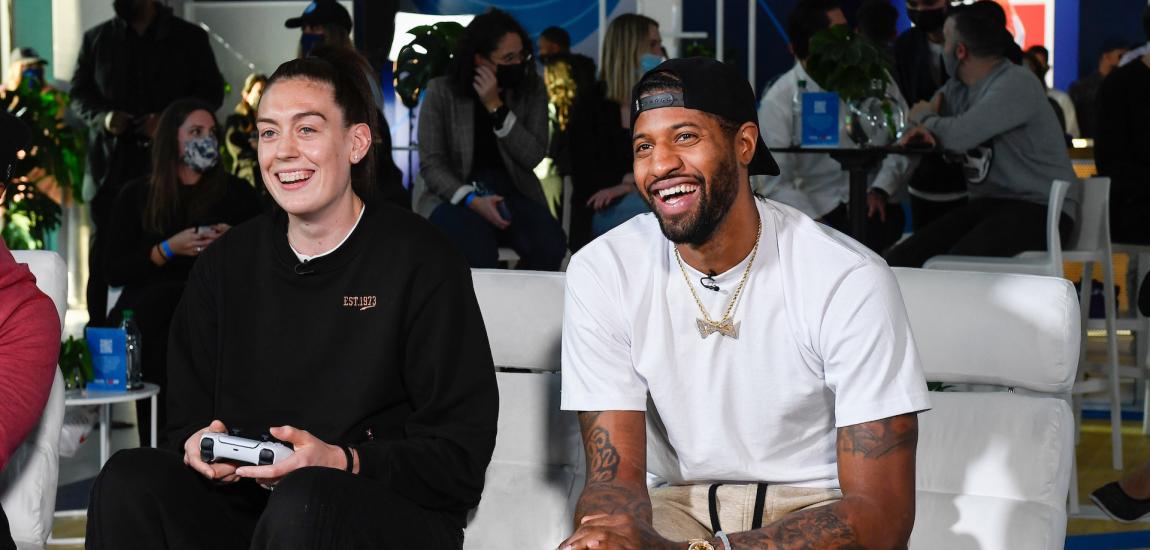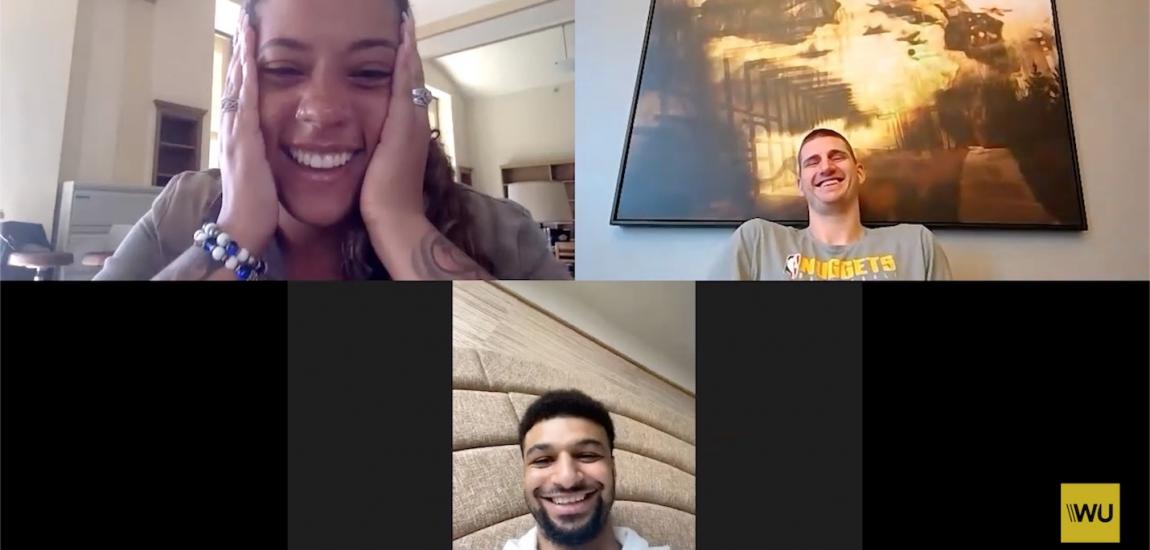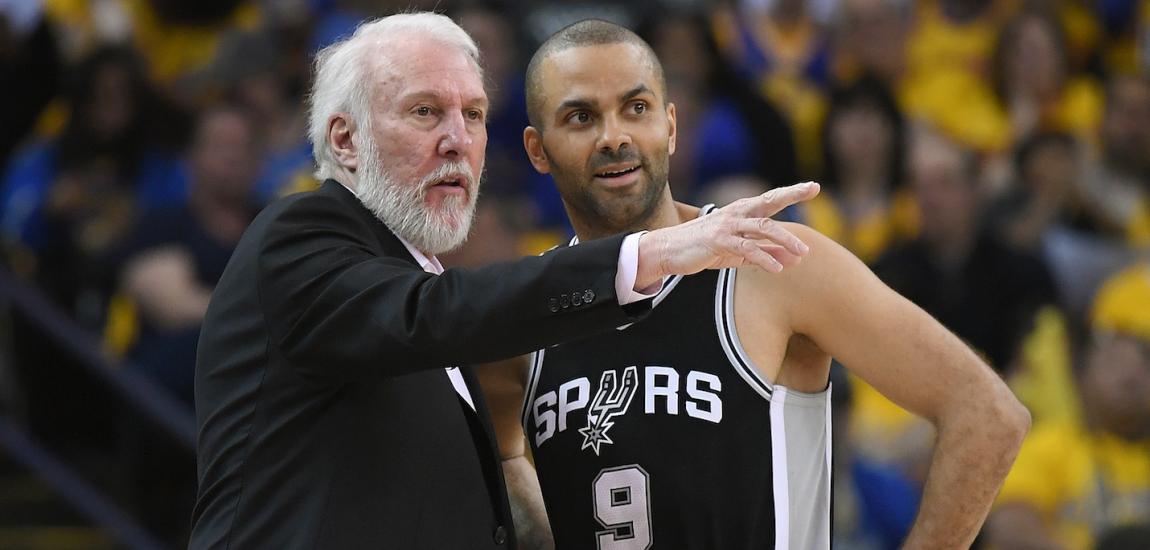
The problem, they say, with asking people to pick sides in the current labor battle between NBA owners and NBA players is that it's hard to get people to choose between rooting for billionaires and rooting for millionaires. This, despite the fact that the difference between a billionaire and a millionaire is actually quite vast, as in a thousand times so.
But arguing that NBA players are The Downtrodden based on the mathematics of their relative poverty has as much chance of working as a kite made out of encyclopedias. Further contributing to the players' challenges in the court of public opinion is the propensity for image-eroding behavior like bringing guns to the workplace and, occasionally, changing their names to combinations of words whose meaning is opaque, if not downright nonsensical.
In spite of this rickety soapbox, the players are probably more "right" in the current battle to renegotiate the NBA's Collective Bargaining Agreement. Because while the millionaires might sometimes commit acts that leave their fans wishing for the comparatively tame Roy Tarpley Years, at least they are honest about the nature of their jobs.
Which is a lot more than we can say for the billionaires.
NBA Commissioner David Stern has said that during the 2010-11 season, NBA owners lost a combined $300 million. Reports on the veracity of this number are varied, but most agree that it is inflated. Forbes magazine, for example, questions the logic of a reported $300 million loss when, by its reckoning, the league made $183 million in 2009-2010. It is generally accepted that the 2010-11 season was far more successful than the previous one, making it hard to believe that the league's owners somehow reversed field by half a billion dollars.
But arguing over accounting methods is a diversion best left to people with more time than you and I. More important, I think, is something the owners have wisely kept out of the public eye. Two somethings, actually.
First, not all owners are created equal.
I once played (a term I use loosely) for the Phoenix Suns. At the end of a wildly successful season -- "we" went to the Western Conference Finals on the backs of Steve Nash, Amar'e Stoudemire, and Shawn Marion -- the team's owner, Robert Sarver, stood at the dry erase board at the front of the locker room and enumerated the financial options for the following year. He wrote three large numbers in a column on the left -- let's call them Big, Bigger, and Biggest -- and then, while pointing to each, wrote down the corresponding projected profit to the team if he (and his co-owners) spent each of those numbers on the team's payroll.
The profits were relatively small; for Big, it was something like $6 million, for Bigger, something like $3 million, for Biggest, a loss of a few million. (Forgive me for not recalling the exact numbers; Mr. Sarver didn’t seem like he would have appreciated note-taking.)
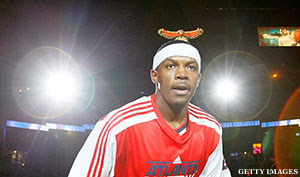
The thrust of the talk was that he knew very well how to predict what would probably happen the next year -- financially, at least. By his tone it was clear that he wouldn't be thrilled with spending anything more than the Big option. (His behavior proved his tone prophetic -- Joe Johnson escaped Phoenix soon after; the Suns have never really recovered.)
Sarver is the sort of owner that the public could, in theory, feel sorry for. (This would be easier if not for the widely-held view that he has ruined the Suns.) By the standards of an NBA owner, Sarver is a pauper, and one who is interested in running his team like a business. There are other owners like him; the Los Angeles Clippers's Donald Sterling has been squeezing profits out of a perennially-awful franchise for years -- unsympathetic character traits notwithstanding.
Contrast these men (and their motivations) with Portland Trailblazers owner Paul Allen (below), he of the $13.5 billion Microsoft nest egg. Or with the Orlando Magic's Richard Devos ($4.2 billion). Or with the New York Knicks' James Dolan ($3.3 billion). Or with the newest glamour-owner of them all, the New Jersey Nets' Mikhail Prokhorov ($18 billion).
Some NBA owners buy and run their teams because they’d like to make a profit, but many do so because they’re willing to pay (a lot) for the fleeting thrill of victory. (Or are bored, or would like to impress girls, or can only buy so many Lamborghinis.)
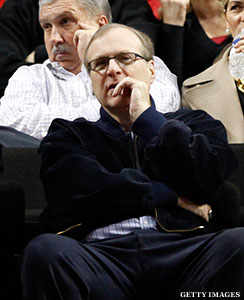
It is speculative, of course, for me to write that men like Allen, Dolan, and Prokhorov don’t care about the bottom lines of their respective franchises; they wouldn’t have amassed such fortunes without paying some attention to costs and revenues. But, based on the behavior of many of their number, it is reasonable to assume that some owners are in it less for the sake of their bank accounts and more for the sake of their egos. (Or ids, if they get to meet one of Leonardo DiCaprio’s girlfriends.)
That is to say that some owners plan to lose money -- whether as a tax write-off against profits made in their real jobs or because they think of their NBA teams like your friend Steve thinks of Sloppy Second-Down, the fantasy football team he’s piloted to no fewer than two championships (in eight tries).
Whatever their respective motivations, not all NBA owners view their teams as profit generators. Which makes the Owners’ (as a group) claim of operating losses all the more flimsy.
But let's say we assume that every owner is running his franchise like a business. There is a second dirty secret that owners don't want exposed: year-to-year operating profit is only one way to make money while owning a professional sports franchise.
Turning once again to my former employer ...
Jerry Colangelo was at the head of a group of investors who, in 1987, bought the Phoenix Suns for $44 million. In 2004, that group sold the Suns to the one directed by the aforementioned Robert Sarver for $404 million. This represents a tidy 478 percent return on investment, even after we account for inflation.
Or take the case of the Suns' Western Conference rival, the San Antonio Spurs. Purchased by Peter Holt in 1996 for $76 million, the Spurs are now (according to Forbes) worth $404 million. The Spurs lost $4.7 million in 2010 (again, according to Forbes), which was an aberration -- it was the first time in eight years that the team lost money. But Mr. Holt must have found solace in the fact that if he had sold his team at market value, he would have cleared around $300 million. On a 14-year investment. Or a little over $21 million per year. Even if his team had lost $4.7 million every year, Mr. Holt would not soon have been caught toting his bindle down the highways of America.
NBA owners are like investors who want their stocks to provide them with dividends and gain value over the long run, but who won't admit to such lofty desires. Instead, they focus public attention on the fact that this year's dividend hasn’t been up to snuff. (Which, as I established at the outset, may or may not even be true.)
The problem, for NBA players, is that NBA owners are far smarter -- and far more united -- than they are. The owners only number 29 (the NBA owns the New Orleans Hornets) while there are between 400 and 500 players. And despite the logic of the above, the case against the owners is a more intricate one than any case against the players, especially when those players are prone to regrettable comments in interviews (recall Latrell Sprewell's infamous remarks about his inability to "feed his family" on $7 million per year) and to spending sprees that leave their financial cushions far thinner than seems possible (the 1998 lockout is rumored to have ended mainly because players were running out of money).

NBA players will probably lose the battle over a new Collective Bargaining Agreement. This won't happen because the players are less right; it will happen because NBA players are like Congressional Democrats -- not very good at picking the battleground. Instead of pointing out why being an NBA owner isn't like running a soft-drink company, the players will squabble over the accounting methods. Instead of reminding the public that, to owners, some NBA teams are more like trophies and less like revenue engines, they'll bicker over percentage changes in revenue-sharing. And instead of bringing to light the insane capital appreciation an NBA franchise can sometimes generate, the players will argue about Bird rights and rookie pay scales and mid-level exceptions.
But the players' most egregious error will be to fail to remind people who have to pick between billionaires and millionaires that, while they may not be sympathetic characters, they are far easier to root for than men who aren't telling the whole truth about what it means to own an NBA franchise.
-- Paul Shirley is a recovering professional athlete who writes about sports and music. Check out FlipCollective.com, his website for writers, or follow him on Twitter @paulthenshirley.

